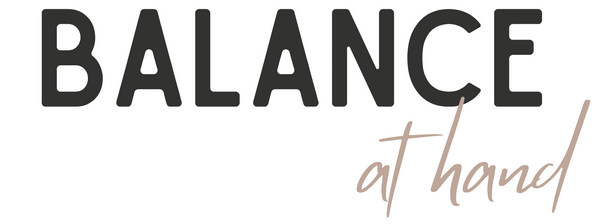The Quiet Power of Automating Your Everyday
Share
Do you ever find yourself standing at the fridge at 7pm, exhausted, wondering what on earth is for dinner? Or rushing out the door in the morning, keys in one hand and a half-packed lunch in the other?
Those moments aren’t about laziness or poor time management. They’re often signs of overload — too many decisions, not enough support, and no breathing space.
What if some of that daily decision-making could be removed?
Not by doing more — but by gently setting systems in place that do it for you.
Why Automation Isn’t Just for Tech
Automation can sound intimidating — like something meant for spreadsheets and factories. But in real life, it’s much simpler. It's about removing the mental clutter of repeating the same decisions every day.
It looks like:
Planning your outfits on Sunday so you don’t have to think about it each morning.
Prepping dinner ingredients or full meals ahead of time.
Setting up systems for the kids to pack their own lunches (yes, really!).
These aren’t productivity hacks. They’re acts of self-kindness.
They create space for calm, and free your energy for the things that truly matter.
Where to Start: Two Key Stress Points
1. Mornings
Mornings tend to feel frantic — especially if you live with others. But it doesn’t have to be that way.
Try this:
Set your leaving time the night before — and stick to it.
Choose clothes and pack bags (yours and theirs) ahead of time.
Keep breakfast and lunch simple. Leftovers are gold.
Bulk lunch prep on weekends can give kids (and you) choice without the chaos.
Even small shifts like these can transform how your day begins. You’re not chasing time — you’re owning it.
2. Dinners
The dinner scramble can be one of the most draining parts of the day.
Automation here might mean:
Planning meals for the week (loosely, if you’re not a rigid scheduler).
Cooking extra portions for lunch or midweek nights.
Using fridge tubs labelled with meals or days to sort ingredients ahead of time.
Keeping easy wins (like a scheduled takeaway night) to avoid decision fatigue.
You don’t need to cook like a chef. You just need systems that support you when your energy dips.
Let Go of the Myth of Rigidity
Many people resist routines and automation because they fear becoming too structured. But in reality, the more organised you are, the more flexible you become.
That’s because you’ve already handled the basics — so when something unexpected happens, you’ve got the bandwidth to respond with grace, not stress.
And if you’re raising kids, automation isn’t just helpful — it’s a life skill. Get them involved in preparing, packing, and contributing in age-appropriate ways. It builds confidence and frees up your load.
What’s Your Daily Stress Point?
If mornings and dinners don’t feel like your pinch points, that’s okay. The principle remains the same:
Identify where you feel overwhelmed — and ask:
How can I remove decisions ahead of time?
Automation is not about perfection. It’s about creating room for the life you want to live, rather than just reacting to the one you’re managing.
If you’d like support in putting these ideas into practice — including specific strategies for mornings, mealtimes, and beyond — Episode 10 of the Keeping Balance At Hand podcast guides you step by step.
It's a gentle, practical listen — and a great place to begin easing the pressure on your daily life.
You don’t have to do more. You just need to set a few things up once — and let them run on their own.
